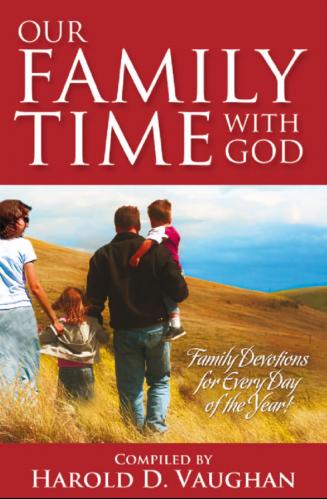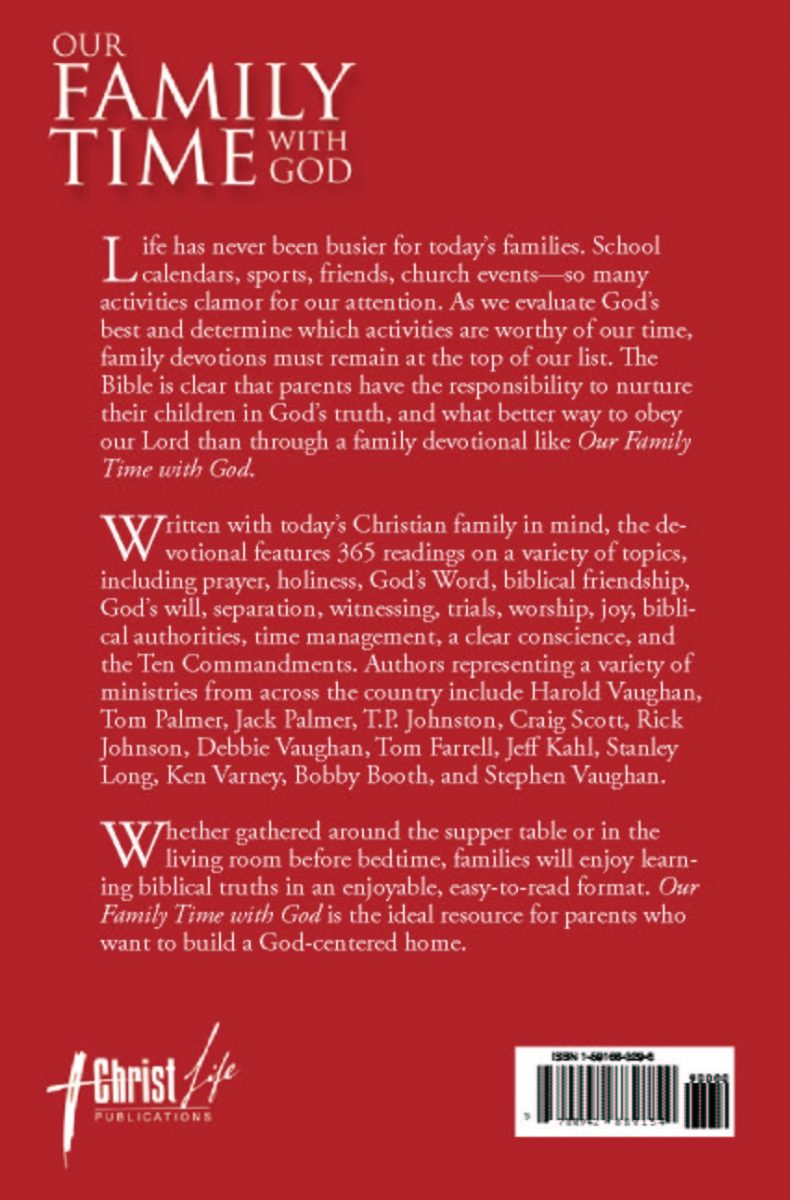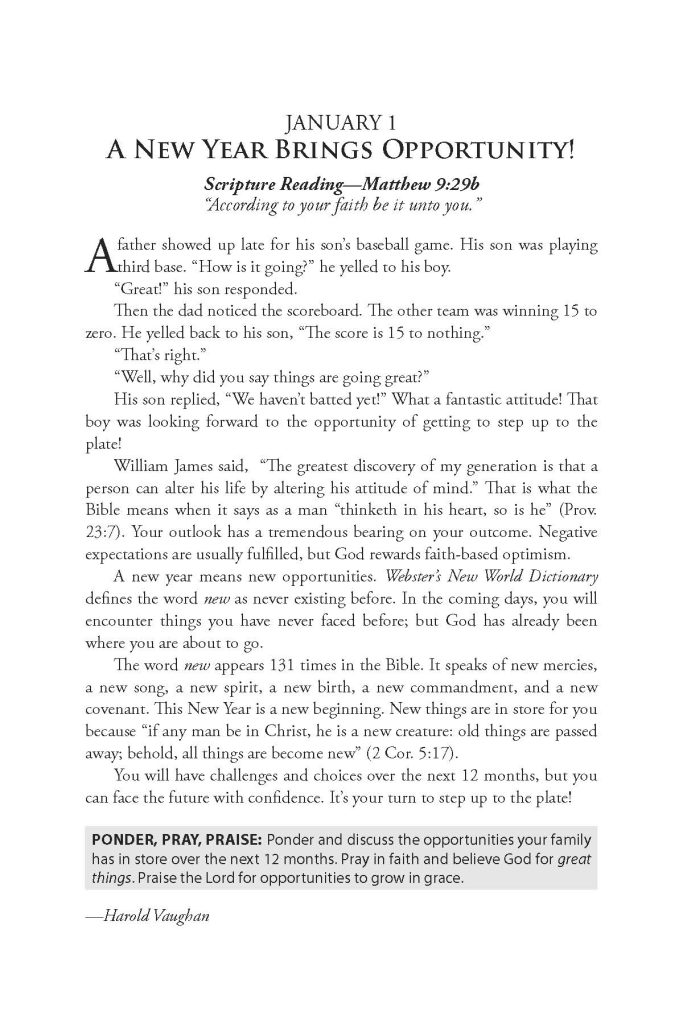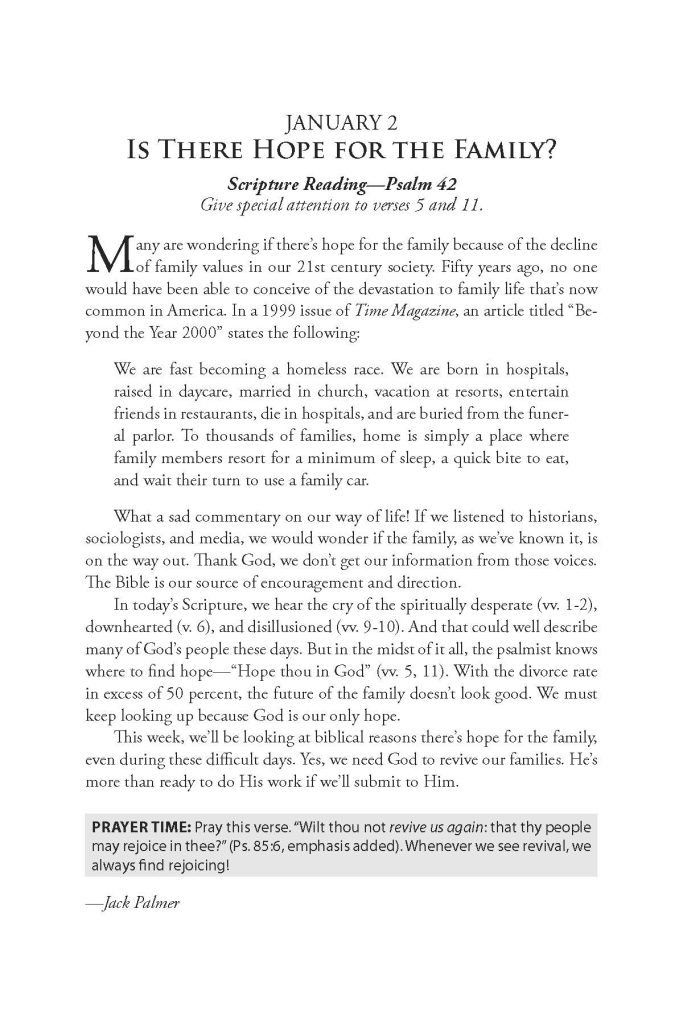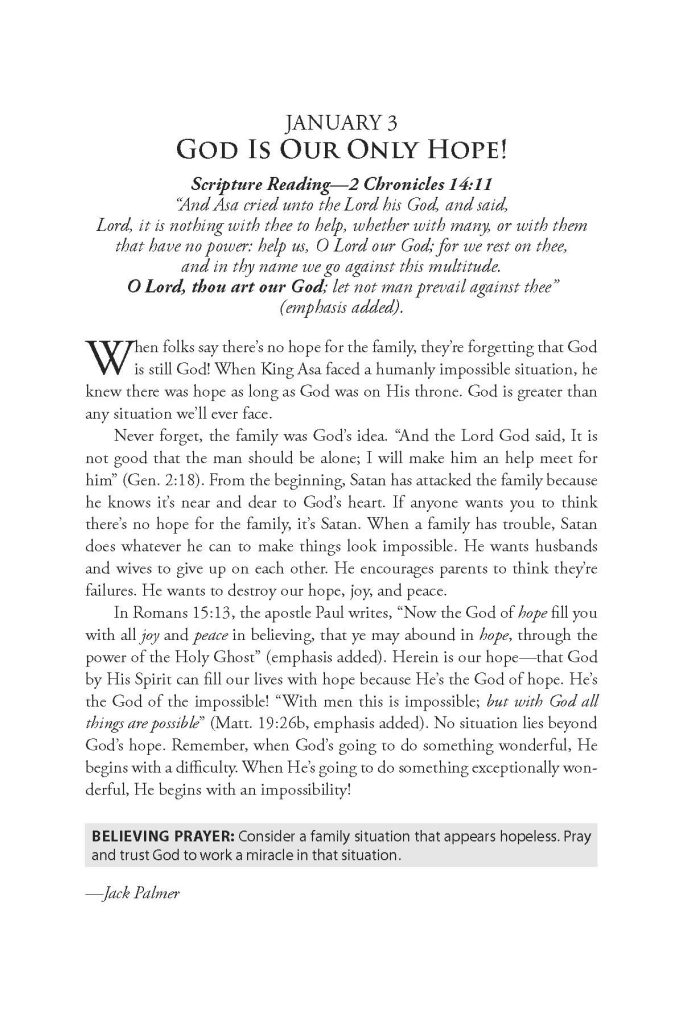ISBN-10: 0-9428-8915-0
Written with today’s Christian family in mind, the devotional features 365 readings on a variety of topics, including prayer, holiness, God’s Word, biblical friendship, God’s will, separation, witnessing, trials, worship, joy, biblical authorities, time management, a clear conscience, and the Ten Commandments. Authors representing a variety of ministries from across the country include Harold Vaughan, Tom Palmer, Jack Palmer, T.P. Johnston, Craig Scott, Rick Johnson, Debbie Vaughan, Tom Farrell, Jeff Kahl, Stanley Long, Ken Varney, Bobby Booth, and Stephen Vaughan.
Whether gathered around the supper table or in the living room before bedtime, families will enjoy learning biblical truths in an enjoyable, easy-to-read format. Our Family Time with God is the ideal resource for parents who want to build a God-centered home.
Call our office (540-890-6100) for quantity discounts.

